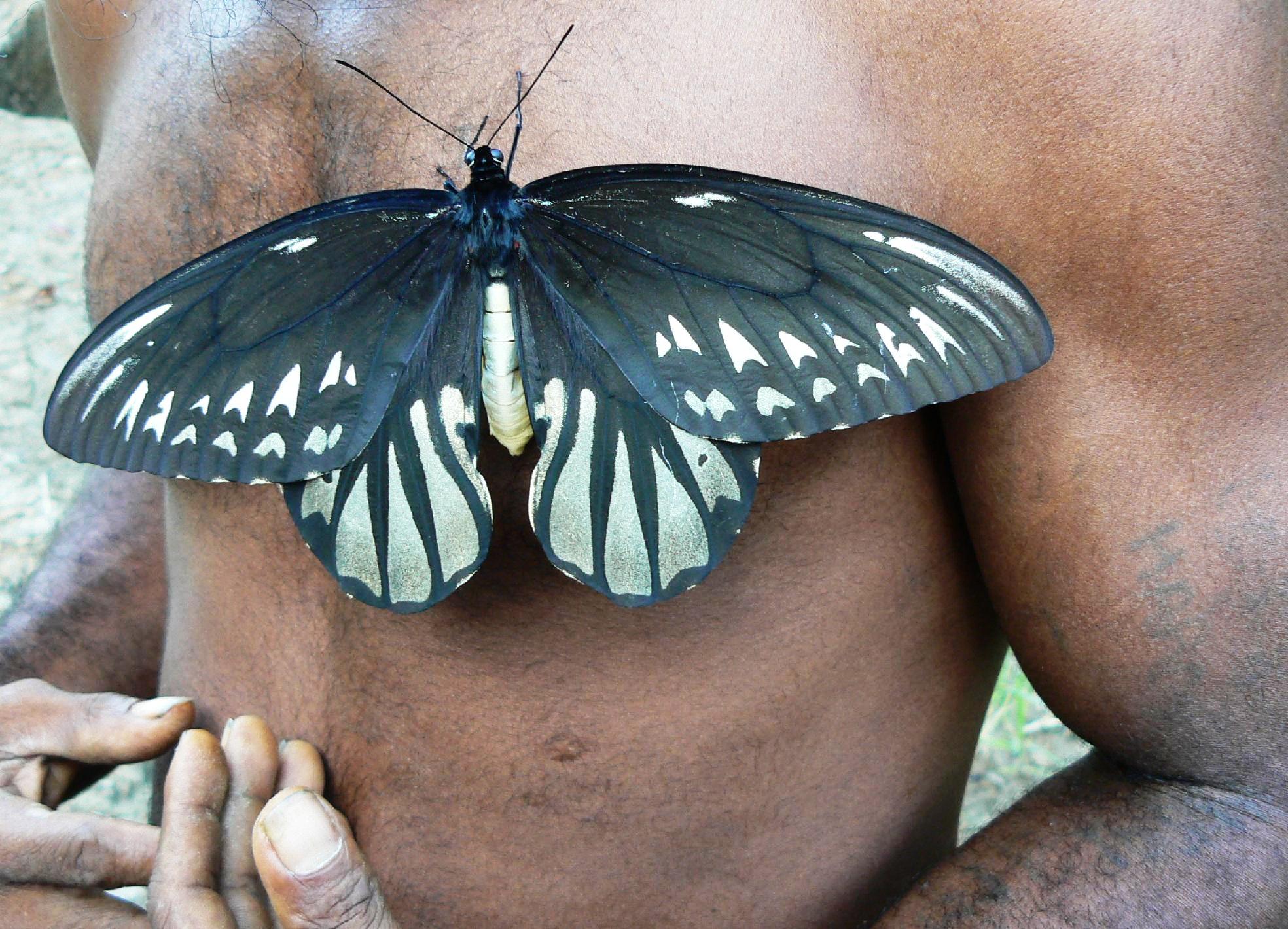World's biggest butterfly in danger of extinction due to palm oil industry
Dwindling numbers due to encroaching industry, illegal trade and logging

The world’s largest butterfly – an endangered species – will be the first to benefit from a new conservation project in Papua New Guinea.
The Queen Alexandra’s Birdwing is facing dwindling numbers due to the palm oil industry eating up its natural habitat, as well as logging and illegal trade.
Within its small pockets around Popondetta in the Northern Province of Papua New Guinea, there are only 10 female butterflies per square kilometre.
Conservationists hope the new project to save it, a captive breeding and release programme involving the local community, can be extended from Papua New Guinea to the UK.
The laboratory will be located at New Britain Palm Oil’s Higaturu palm oil estate, and staffed by an entomologist and technicians. Conservationists said their work is financially independent from the palm oil industry, but that collaboration was crucial.
Swallowtail and Birdwing Butterfly Trust member and entomologist Charles Dewhurst said he was sure the project would protect the species, which has been endangered for four decades.
The butterfly with a woodland empire
Show all 5“It has the advantage not only of being co-located at the heart of the problem, but also has support from all quarters. This sort of cooperation will make all the difference,” he said.
If successful, the programme will also be used to protect other species.
Mark Collins, former co-author of the IUCN Red Data Books on Invertebrates and Swallowtail butterflies and chairman of the new Swallowtail and Birdwing Butterfly Trust, has worked on saving the butterflies for 30 years.
“We need to create win-win relationships. Everyone loves butterflies – they are flagship species and can bring back a feel-good factor to those working in the palm oil sector, to local people and as an attraction for eco-tourists,” he said.
They plan to study the best areas to release the butterflies in the forests surrounding the palm oil estates, cultivating vines in those areas and making sure there are supplies of the butterflies' favourite food plant, the Dutchman’s Pipe Vine.
Mr Collins has worked with palm oil industry figures to launch the programme. NBPOL is a subsidiary of Sime Darby Group, which works on plantations and industrial equipment.
Subscribe to Independent Premium to bookmark this article
Want to bookmark your favourite articles and stories to read or reference later? Start your Independent Premium subscription today.

Join our commenting forum
Join thought-provoking conversations, follow other Independent readers and see their replies